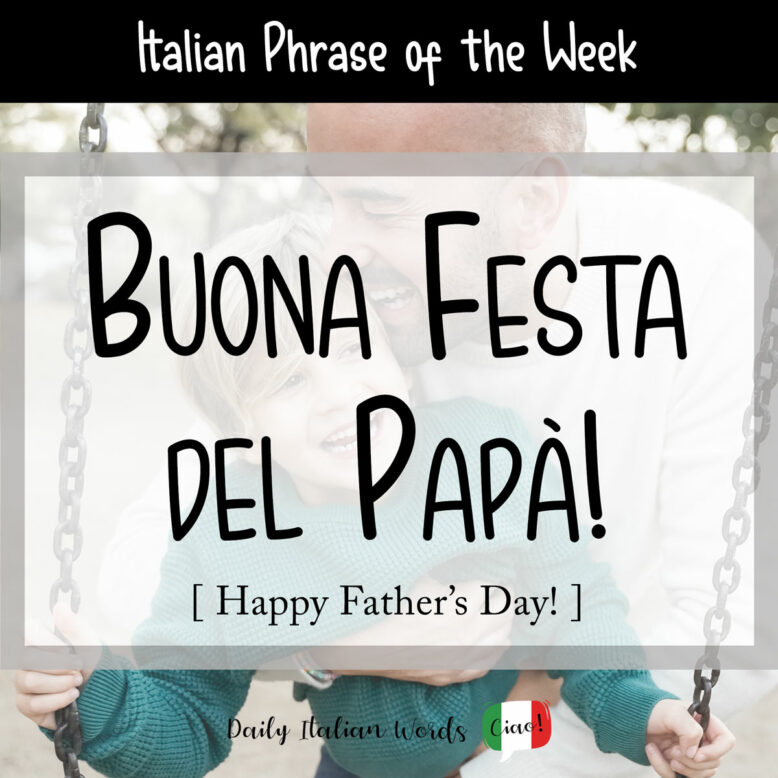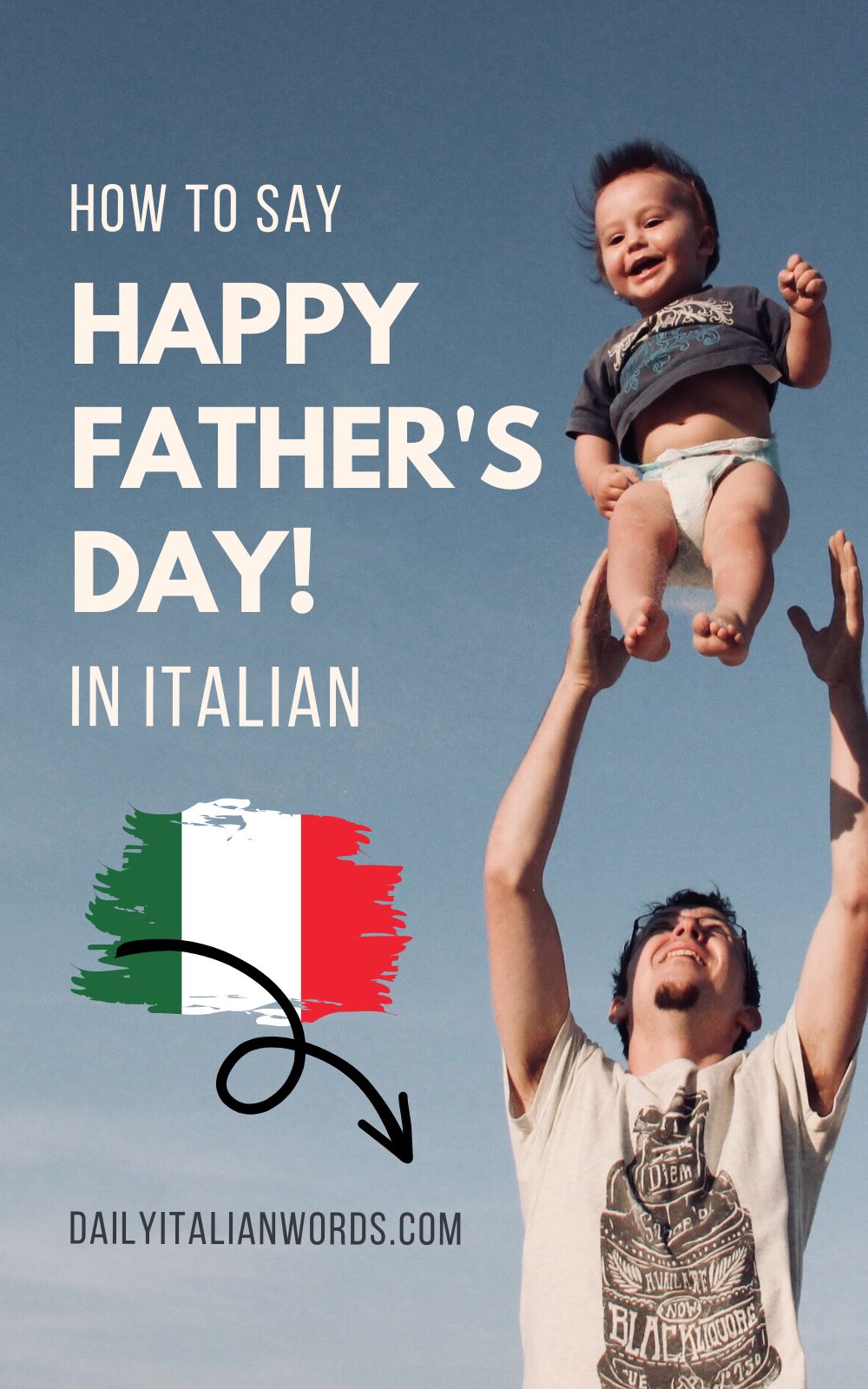Father’s Day (known as la Festa del Papà in Italian) is celebrated on different days around the world, just like Mother’s Day.
In most countries including the United States, Canada, France and Japan, the customary day for the celebration of fatherhood takes place on the third Sunday in June but in Italy, it always falls on March 19th, which is also the feast day of Saint Joseph in the Catholic religion. It is thought that the celebration of Father’s Day dates back to at least 1508.

Note: The reason I decided to write about the phrase Happy Father’s Day today rather than on the day of the Italian celebration is because the vast majority of our visitors come from countries where it is held in June.

The way you would say Happy Father’s Day! in Italian is Buona Festa del Papà! You can hear exactly how it should be pronounced below.
Buona ( good ) + Festa ( party, celebration ) + del ( of the ) + Papà ( dad, father )
Happy Father’s Day!
An alternative way of saying the same greeting is Felice Festa del Papà! with felice meaning happy.
Felice Festa del Papà!
Happy Father’s Day!
If you are writing to someone who is celebrating his very first Father’s Day, simply insert the word prima (first) in between buona and festa.
Buona Prima Festa del Papà!
Happy First Father’s Day!
Those of you who are planning to write your father a greeting card (biglietto di auguri), email or text in Italian might want to consider including some of the following greetings in your message:
- Tanti auguri, Papà! = Best wishes, Dad!
- Al papà migliore del mondo… = To the best dad in the world…
- Sei un papà fantastico! = You’re a fantastic dad!
- Papà, sei unico! = Dad, you’re one of a kind!
You could also surprise him with an unexpected gift (regalo) such as chocolates (cioccolatini), a bottle of wine (vino) or beer (birra), a special mug (tazza) or something homemade (qualcosa fatto a mano).

How to Say “I love you, dad!” in Italian
The phrase “I love you, dad!” in Italian is best translated as Ti voglio bene, papà! Note that I didn’t use the phrase Ti amo since it tends to be reserved for romantic love, not platonic love. You can discover all the differences between ti amo and ti voglio bene here.
Be sure to check out our full article about the word papà in Italian!

Heather Broster is a graduate with honours in linguistics from the University of Western Ontario. She is an aspiring polyglot, proficient in English and Italian, as well as Japanese, Welsh, and French to varying degrees of fluency. Originally from Toronto, Heather has resided in various countries, notably Italy for a period of six years. Her primary focus lies in the fields of language acquisition, education, and bilingual instruction.


